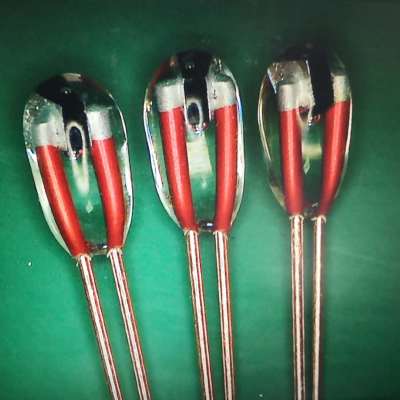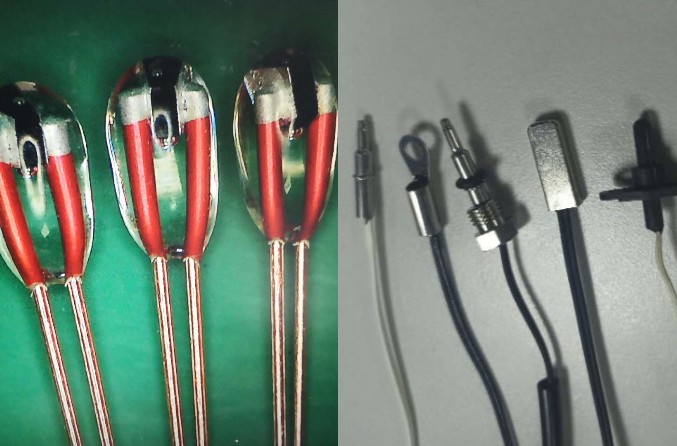In a world driven by precision, temperature monitoring plays a pivotal role in numerous industries. Whether ensuring the safety of medical patients, maintaining the efficiency of industrial machinery, or enhancing the reliability of aerospace components, accurate temperature readings are paramount. Thermistors, as one of the most reliable temperature-sensing components, have evolved to meet these growing demands. Among them, glass-coated chip thermistors stand out due to their exceptional resilience and accuracy. Their unique construction not only enhances durability but also ensures unparalleled precision in critical applications.
Unparalleled Durability: The Strength of Glass Coating
Glass-coated chip thermistors offer a distinct advantage over conventional epoxy-coated alternatives—their remarkable resistance to environmental stressors. The hermetic glass encapsulation shields the sensitive semiconductor material from moisture, corrosive chemicals, and particulate contamination. This makes them particularly suitable for deployment in humid or chemically aggressive environments, where traditional thermistors would degrade over time.
Beyond chemical resistance, glass-coated thermistors exhibit superior mechanical strength. The rigid encapsulation reduces the risk of physical damage due to vibrations, impacts, or mechanical stress, ensuring longevity in demanding industrial and automotive applications. Unlike polymer-coated alternatives, which may degrade under prolonged exposure to extreme conditions, glass-coated thermistors retain their structural integrity, providing a reliable long-term solution for precision temperature monitoring.
Precision and Sensitivity: The Hallmarks of Glass-Coated Thermistors
Accuracy is the cornerstone of effective temperature monitoring, and glass-coated chip thermistors deliver exceptional performance in this regard. Their inherent low drift characteristics ensure that readings remain consistent over prolonged periods, reducing the need for frequent recalibration. This stability is particularly crucial in medical and scientific applications, where even minor deviations can have significant consequences.
Additionally, these thermistors offer rapid thermal response times, allowing for real-time monitoring of temperature fluctuations. In applications such as high-performance electronics or pharmaceutical storage, where precise thermal regulation is non-negotiable, glass-coated thermistors provide an unmatched level of accuracy. Their high sensitivity ensures that even the slightest temperature variations are detected, making them indispensable in critical monitoring systems.
Versatility Across Applications
Glass-coated chip thermistors are not limited to a single industry; their robust design and precision make them ideal for a wide array of applications:
- Medical Equipment: From incubators to dialysis machines, accurate temperature control is essential for patient safety. Glass-coated thermistors provide precise readings, ensuring that medical devices operate within optimal thermal ranges.
- Aerospace and Automotive: In environments where temperature fluctuations can be extreme, such as aircraft engines or automotive exhaust systems, these thermistors offer reliable performance, safeguarding critical components.
- Industrial Automation: Manufacturing processes often require stringent temperature control to ensure product quality and operational efficiency. Glass-coated thermistors contribute to maintaining stable conditions in automated systems, reducing the risk of overheating or thermal inefficiencies.
Resistance to Aging and Performance Degradation
One of the most compelling benefits of glass-coated chip thermistors is their resistance to aging. Unlike polymer-based thermistors, which can experience resistance drift over time due to exposure to environmental factors, glass-coated variants exhibit minimal degradation. This ensures long-term accuracy, reducing maintenance costs and downtime in critical applications.
Additionally, the glass encapsulation provides a barrier against oxidation, a common issue that can affect electrical components over time. By mitigating these aging effects, glass-coated thermistors maintain their performance across extended lifespans, making them a cost-effective investment for industries requiring high reliability.
Conclusion
Glass-coated chip thermistors represent the pinnacle of precision temperature sensing technology. Their superior durability, exceptional accuracy, and resistance to environmental degradation make them the ideal choice for applications demanding consistent and reliable temperature monitoring. From medical devices to aerospace systems, their versatility ensures widespread adoption across industries where precision is paramount.
As technology advances, the demand for more resilient and accurate temperature sensors will only increase. Glass-coated thermistors are well-positioned to meet these challenges, continuing to serve as a cornerstone of high-precision temperature monitoring in the years to come.








